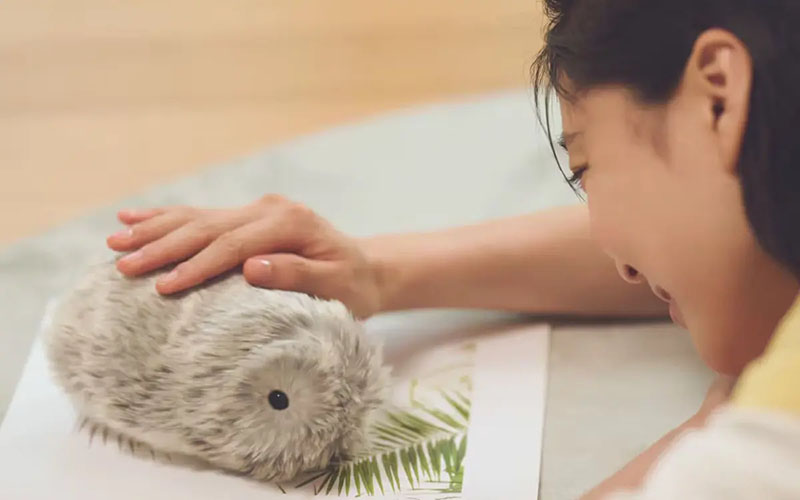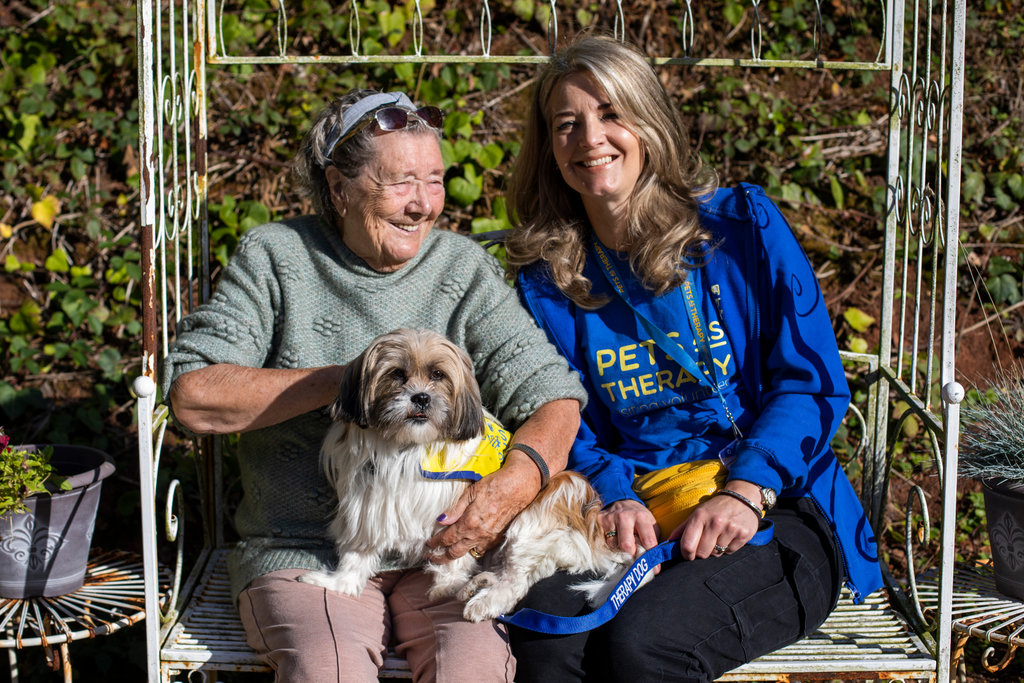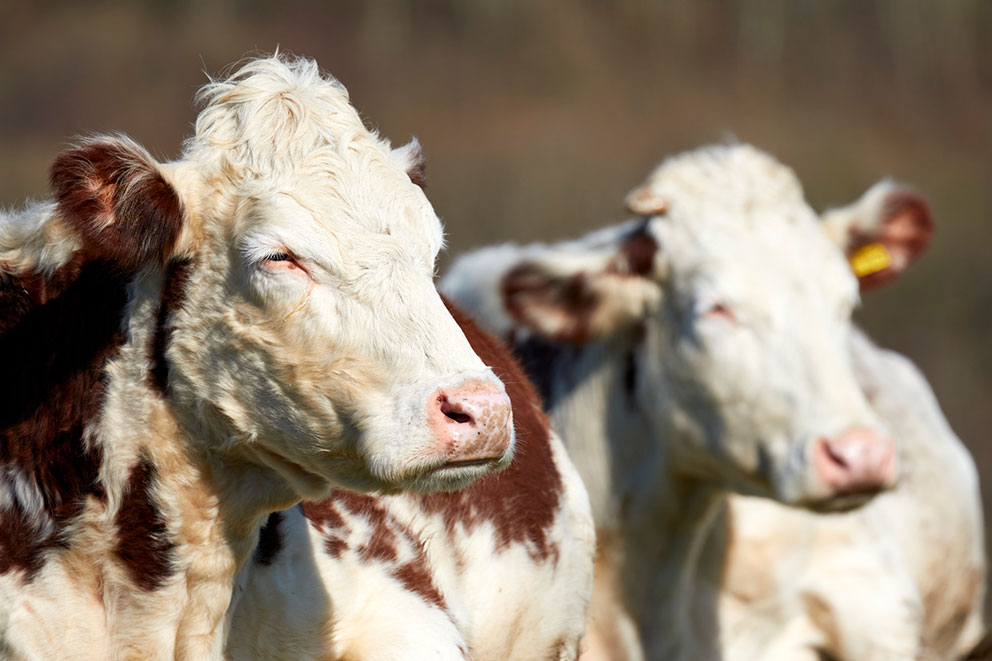What are robot pets?
Robotic pets are artificially intelligent machines that are developed to resemble actual pets. There is already a high demand for pet robots, with the market size estimated at $1.2 billion in 2022.

The future of robot pets
Our Animal Futures report imagined what the world might be like for animals in 2050. The report considered the impact of issues like climate change, dietary choices and our access to nature. One of the themes that drew controversy was that of robot pets, and how prominent these may become in our society.
These robot pets are becoming more successful at mimicking their live counterparts. They have shown to have benefits for people with dementia, older people experiencing isolation and loneliness. Others may see them as harmless fun, but they can offer a cost-effective alternative for those unable to take on a live animal.
But the very idea of robot pets is also worrying many people. Since we launched Animal Futures, a social media post speculating about the future of robot pets has attracted thousands of comments from concerned animal lovers. Many seem to hate the concept; or even see their very existence as a threat to our rights to own a real pet.
Our stance on robot pets
The RSPCA is not advocating for robot pets - and certainly not as a replacement for the responsible pet ownership we endorse every single day.
We’re proud to be a rehoming organisation - in fact, we like to think finding new homes for (real) pets is one of the things we do best!
Adoptober is our annual October rehoming drive, where we try and find special homes for some of the longest-stay pets in our care. It's a great opportunity to shine a light on the amazing work our rescue centres, branches and rehabilitation teams do every single day to get pets into loving new homes.
In 2023, those amazing people rehomed more than 28,000 pets. There's nothing our dedicated teams like more than finding new homes for the pets in our care; and we know for most people, the special bond between owner and pet simply cannot be replicated with circuit boards and robotics.
And we want everyone who is able to responsibly enjoy pet ownership to have that chance.

How are we trying to encourage pet ownership?
We've campaigned hard for a change in law that will end blanket bans on pet ownership for those living in private rental accommodation - something the UK Government is taking forward for England via a Renters' Rights Bill. If millions of people in the private rented sector in England suddenly get the opportunity to adopt a pet, it'll be a huge moment of celebration for the animal welfare sector.
Pets enrich our lives in so many ways. They bring joy, challenges, excitement, companionship and can change our lives. Animals are unique - and a robot pet can never fully replicate that.
What about those who can't own a pet?
Why should those people be denied at least some of the joys that come with spending life with a pet? Robot pets do offer a viable alternative for those not able to own a pet, or even a longer-term route into pet ownership for others.
These increasingly advanced robotic pets can provide companionship, reducing feelings of isolation.
For those with dementia or conditions that might stop them owning live animals, robot pets are proven to offer a source of friendship and stress relief. For those with severe allergies, they can offer a smile when owning a real pet isn’t possible. And for kids, these can not only be fun and interactive toys - but teach a sense of responsibility and care in the animal owners of the future.
Robot pets can even inspire displays of kindness, compassion and empathy.
Whatever our view on robot pets, we can surely all agree these things are all positive!
But there’s challenges too. Owning a real pet is very rewarding, but challenging - and robot pets must never downplay or understate what is involved with keeping a real animal.

What's next for robot pets?
As artificial intelligence develops, it's important robot pets don't create any unrealistic expectations of real animals, or what the nature of our relationship with them should be like. We need to work to realise the benefits, while ensuring robot pets don't lead to any sort of diminished empathy or understanding of the uniqueness of real animals.
Advances in technology will undoubtedly continue to change how we look after our pets. Already, in-home pet cameras, automated feeders, microchips and interactive enrichment toys are becoming common items in a pet owners’ home alongside the more traditional pet bowl, scratching post and squeaky toys.
And so long as we remember they are different to real animals - there’s every reason to expect robot pets to play a part in that future too.




